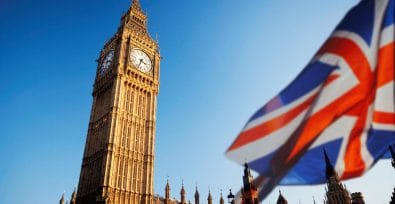The UK’s 2015 Modern Slavery Act turned ten years old this week. The legislation was designed primarily to increase protections for modern slavery survivors and to penalize offenders. But in the past ten years, the number of potential victims identified has increased exponentially and prosecutions have been low in comparison. Articles by The Conversation and Forbes dive into what went wrong.
Off to a strong start
Backed by then-Home Secretary Theresa May, the Modern Slavery Act focused on strengthening the criminal justice response. Previously, crimes such as human trafficking, forced labor, slavery, and servitude were addressed under separate laws, but this act brought them together under a single framework.
More recently, in 2023, Theresa May said:
“Modern slavery is a brutal crime which knows no boundaries and does not discriminate on gender, age, creed, culture or race,”
One key impact of the legislation has been a sharp rise in the number of identified victims. In 2024, 19,125 people were recognized as potential victims—nearly six times more than in 2015. This increase is partly due to improved awareness among frontline responders, who play a crucial role in referring victims for support.
The act also included a “transparency” clause for the private sector, requiring large businesses to report their efforts to prevent modern slavery in their supply chains—but without penalties for noncompliance. Recent cases involving McDonald’s and major supermarkets reveal that businesses are failing to detect or effectively prevent exploitation.
Additionally, it established an Independent Anti-Slavery Commissioner to promote good practices, and introduced new protections for survivors, including a legal defense for those forced into criminal activity. Law enforcement also gained new powers to seize traffickers’ assets.
Where did it go wrong?
Firstly, prosecutions have been low. Between 2017 and 2019, only 64 adult offenders were sentenced, despite 22,756 victims being identified. One explanation for this is that victims fear detention or deportation if they come forward in pursuit of their traffickers.
Secondly, immigration policies under the last Conservative government weakened protections by claiming that people arriving on small boats were exploiting the Modern Slavery Act to avoid deportation. This approach not only undermined the Act’s intent but also left the UK at odds with international anti-trafficking and human rights standards.
This week, Theresa May took to Twitter to share her disappointment in the lack of protections for victims:
“10 years ago, 200 years after the abolition of slavery, the UK led the world with the Modern Slavery Act. But as the numbers enslaved increase and protections for victims are watered down, we must ask: why we are showing less compassion today than we did two centuries ago?”
Additionally, key concerns raised during the legislation’s drafting have come to fruition. Successive governments have stalled promised reforms, such as creating a unified labor inspectorate, while the UK’s immigration and work visa system continues to enable exploitation in sectors like agriculture and social care.
Moreover, the National Referral Mechanism (NRM), which identifies and supports modern slavery victims, struggles under overwhelming demand. Backlogs and questions over the system’s appropriateness have led thousands to decline formal assistance. Additionally, many victims remain without adequate legal defense or support, with some even ending up in prisons where exploitation continues.
Prevention is key
Lawmakers designed the Modern Slavery Act to reduce exploitation by cracking down on criminals and supporting victims. But the past decade has shown that this approach alone is not enough.
Professor Alex Balch, Director of Research at the Modern Slavery and Human Rights PEC said:
“To truly tackle modern slavery, we need a clear strategy focused on prevention that focuses on addressing conditions that put people at risk of exploitation, such as poverty, exclusion or lack of opportunities to provide for their families,”
To create real change, prevention must be a priority. This means addressing the root causes of exploitation, rather than just reacting to its consequences. For example, right now the UK government has an opportunity to strengthen anti-slavery protections through upcoming legislations such as the Employment Rights Bill.







Freedom United is interested in hearing from our community and welcomes relevant, informed comments, advice, and insights that advance the conversation around our campaigns and advocacy. We value inclusivity and respect within our community. To be approved, your comments should be civil.
Are we blaming poverty yet again? Yes, it assists in the facilitation of the crime however we need to look at a few other factors in priority. Organised criminal networks that deal with all illicit trading globally are way ahead of our impotent attempts to crack down on them. They still find it easy to launder money and they understand the system and how to cheat it. Globally there is a sad lack of cooperation at governmental level and a lack of political will to solve this issue.
Stop modern slavery
Offering a basic income to all adult females, sufficient to support their family might encourage them to step forward. It could br funded from a tax on excessive wealth.
This is what happens when politicians deliberately conflate immigration with asylum for cheap political gain… It is dehumanising, and we all know where that leads…!!!